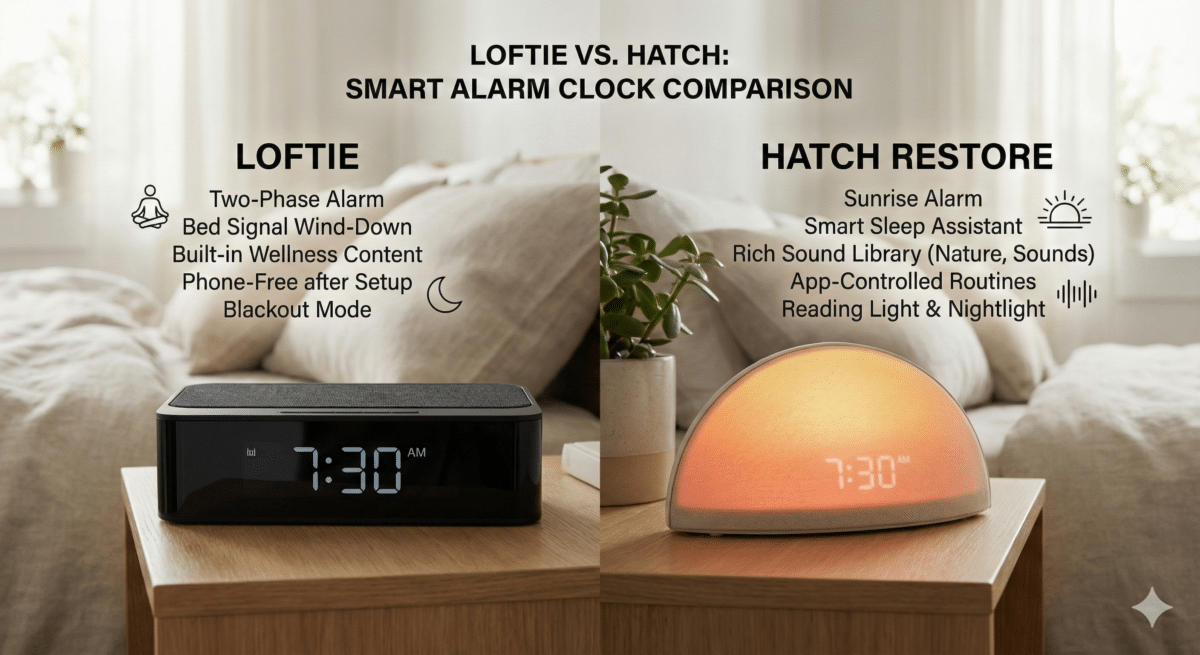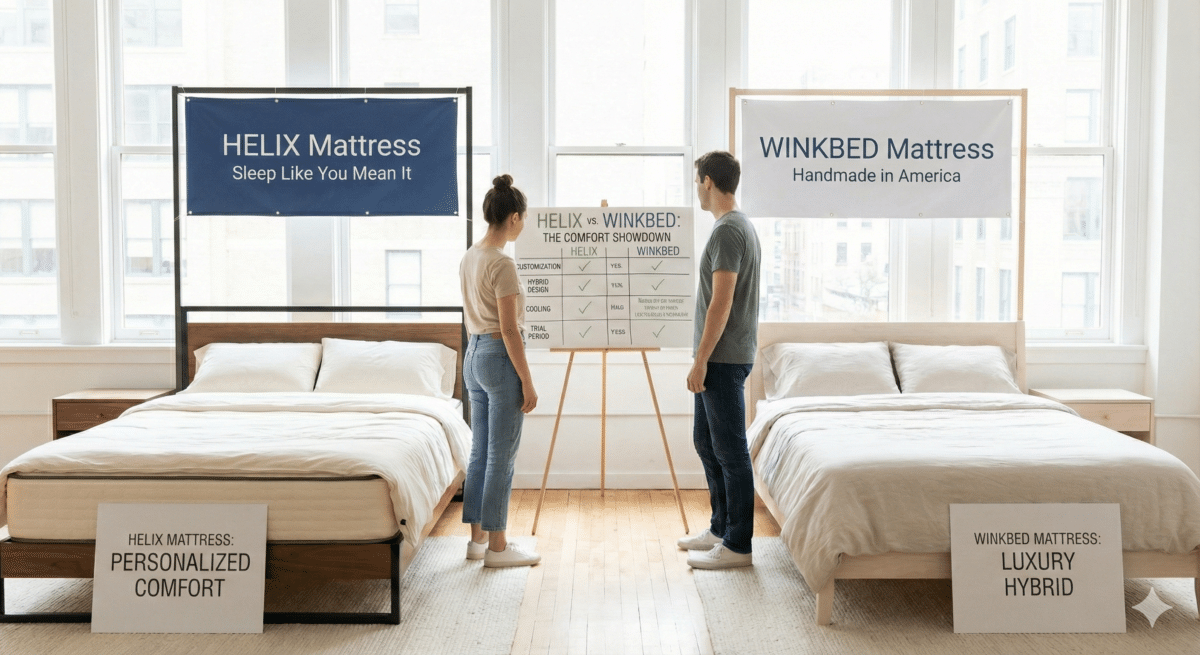The Hidden Dangers of Sleep Deprivation: Statistics and Effects
Why Sleep Is Essential
The effects of sleep deprivation can permeate every aspect of your life, often in ways you might not immediately recognize. From struggling to stay awake during meetings to experiencing unexplainable irritability, the consequences are far-reaching. Here’s a closer look at the hidden dangers of sleep deprivation:
Physical Health Problems: Chronic conditions like heart disease, high blood pressure, obesity, stroke, and diabetes can all stem from insufficient sleep.
Mental Health Issues: A lack of adequate rest can lead to heightened anxiety, depression, mood swings, and difficulties with memory and focus.
Daily Life Disruptions: Sleep deprivation disrupts functioning in professional and academic settings, impairing social interactions and increasing the risk of accidents.
According to the CDC, approximately one in three adults in the U.S. fails to get enough sleep. Nearly 40% report unintentionally falling asleep during the day at least once a month. With 50 to 70 million Americans struggling with chronic sleep disorders, this issue is undeniably pervasive.
I’m Ben Trapskin, creator of Yawnder, and I’ve personally experienced the detrimental effects of sleep deprivation on both my physical and mental well-being. With guidance from medical experts, I successfully improved my sleep habits, resulting in a healthier, more productive lifestyle.
What Is Sleep Deprivation?
Sleep deprivation occurs when you fail to get adequate rest. However, the term sleep deficiency encompasses a broader range of issues, including:
– Insufficient sleep hours
– Sleep at non-optimal times
– Poor sleep quality
– Sleep disorders that disrupt restorative sleep
Types of Sleep Deficiency
Understanding various sleep deficiencies is crucial for recognizing the importance of quality rest:
– Sleep Deprivation: Simply not obtaining enough sleep hours.
– Circadian Rhythm Disorders: Experiencing sleep patterns that are out of sync with your body’s natural clock.
– Fragmented Sleep: Frequent awakenings lead to choppy sleep cycles.
– Sleep Disorders: Conditions such as insomnia, sleep apnea, and restless leg syndrome can severely disrupt your sleep.
CDC Statistics on Sleep Deprivation
The CDC reports that around one in three adults in the U.S. do not get sufficient sleep. Almost 40% of adults fall asleep unintentionally during the day at least once a month, while 50 to 70 million Americans suffer from chronic sleep disorders.
Chronic Sleep Disorders
Several chronic conditions contribute to sleep deficiency, including:
– Insomnia: Difficulty falling or staying asleep.
– Sleep Apnea: Breathing interruptions during sleep.
– Restless Leg Syndrome: Uncomfortable sensations lead to restless legs at night.
– Chronic Pain Conditions: Afflictions like arthritis complicate the ability to sleep well.
– Mental Health Issues: Anxiety and depression can both cause and be exacerbated by poor sleep.
Recognizing these disorders is vital in understanding why prioritizing quality sleep is essential for overall health and well-being.
The Immediate Effects of Lack of Sleep
Fatigue
Fatigue represents one of the most immediate repercussions of sleep deprivation. After a night of restless sleep, even simple tasks can feel daunting. Dr. Patrick Finan from Johns Hopkins notes that just one poor night of sleep can leave you feeling drained and lethargic.
Irritability and Mood Changes
Sleep deprivation can turn you into a more irritable version of yourself. You may find yourself snapping at loved ones or feeling overwhelmed by trivial inconveniences. Research indicates that lack of rest severely impacts emotional regulation.
Cognitive Difficulties
Cognitive impairments are common consequences of inadequate sleep. You might notice struggles with concentration, delayed reaction times, and poor decision-making abilities. Sleep-deprived people frequently find higher-order thinking tasks incredibly challenging.
Memory Issues
Education experts like Dr. Foldvary-Schaefer emphasize that sleep is vital for memory consolidation. Insufficient sleep hinders your brain’s ability to catalog memories effectively, impacting academic performance, especially for students who pull all-nighters.
Concentration Problems
Difficulty maintaining focus is another prevalent side effect. You may find yourself reading the same text repeatedly without comprehension, which can affect your productivity.
Reaction Time
Sleep deprivation can significantly slow your reaction time, particularly dangerous when driving. The National Highway Traffic Safety Administration linking drowsy driving to thousands of crashes each year illustrates this concern.
Decision Making
A lack of sleep can impair your judgment, increasing the likelihood of impulsive choices. Whether it’s financial decisions or social interactions, the consequences can be considerable.
Recognizing these immediate effects underscores the urgency of prioritizing sleep.
Long-Term Health Risks of Sleep Deprivation
The dangers of sleep deprivation extend well beyond fatigue. Long-term health risks include:
Chronic Health Problems
Sleep deprivation raises your risk for chronic conditions, particularly heart disease and hypertension. During sleep, blood pressure drops, offering your heart a reprieve. Inadequate rest prevents this, leading to consistently elevated blood pressure and heightened cardiovascular risks.
Diabetes and Obesity
Inadequate sleep can disrupt metabolic processes. Insufficient rest contributes to insulin resistance and increases cravings for high-calorie foods, leading to weight gain.
Depression and Mental Health
Quality sleep is fundamental for emotional balance. Chronic sleep deprivation can heighten susceptibility to mental health disorders such as depression and anxiety.
Immune System and Inflammation
Sleep is vital for a robust immune response. Lack of sleep diminishes your body’s defenses, making you more prone to illnesses, while chronic inflammation heightens susceptibility to various health issues.
Cardiovascular Disease
Chronic sleep deprivation is closely associated with heart disease, raising risks for serious events like heart attacks and strokes.
Understanding these long-term risks emphasizes the necessity of prioritizing adequate sleep.
The Impact of Sleep Deprivation on Mental Health
Lack of sleep can lead to profound mental health consequences, including:
Anxiety and Depression
Sleep deprivation is closely linked to anxiety and depression, creating a vicious cycle where one exacerbates the other.
Moodiness and Emotional Regulation
Insufficient sleep compromises emotional regulation, making it difficult to handle stress and manage emotions effectively.
Mental Health Disorders
Sleep deprivation and mental health disorders often go hand in hand, requiring a multifaceted approach to treatment.
Severe Cases: Psychosis and Suicidal Thoughts
In extreme situations, severe sleep deprivation can lead to psychosis and even suicidal thoughts. If you or someone you know experiences such symptoms, seeking professional help is imperative.
Lack of Sleep Effects on Daily Life
The implications of sleep deprivation extend to our daily routines:
Work Performance
Sleep deprivation negatively impacts work productivity, lowering decision-making abilities and increasing the likelihood of mistakes.
School Performance
Students often struggle academically when sleep-deprived, finding it challenging to retain information and focus during classes.
Driving Safety
Drowsy driving poses similar risks as drunk driving, increasing accident rates.
Social Interactions
Tiredness alters your emotional responses, making you less patient and empathetic, which can strain relationships.
Overall Productivity
Sleep deprivation generally hampers efficiency in problem-solving and creativity, impacting both work and personal life.
How to Recover from Sleep Deprivation
Recovering from sleep deprivation involves multiple strategies to regain balance:
Catch-Up Sleep
While catching up on sleep over weekends can help, consistency remains crucial for long-term improvement.
Medications
In some cases, prescribed sleep aids or over-the-counter options can be beneficial but should always be used under medical supervision.
Home Remedies
Simple techniques like warm baths or herbal teas can create comforting bedtime routines.
Sleep Hygiene
Implementing practices like maintaining a consistent sleep schedule, ensuring a comfortable environment, and limiting screen time can encourage better sleep quality.
Napping and Physical Activity
Short naps (20-30 minutes) and regular physical activity contribute significantly to better sleep.
Mindfulness Techniques
Mindfulness practices can reduce stress and enhance sleep quality, preparing you for a more restful night.
By adopting these strategies, you can enhance your sleep quality and overall well-being.
Frequently Asked Questions about Sleep Deprivation
What happens to your body when you don’t sleep?
Lack of sleep raises inflammation, weakens the immune system, and impair cognitive functions, increasing health risks like heart disease and diabetes.
What are signs of lack of sleep?
Common signs include fatigue, irritability, anxiety, and low motivation.
How long does it take to fix sleep deprivation?
Recovery time varies based on severity. Consistent, quality sleep improves long-term outcomes significantly.
Conclusion
At Yawnder, we recognize that sleep is a pillar of health and well-being. It’s crucial to prioritize sleep, as it impacts everything from mood to cognitive abilities. By creating a conducive sleep environment and practicing good sleep hygiene, you can enhance your overall quality of life.
If sleep issues are bothering you, seeking professional help is a wise step. Therapies like Cognitive Behavioral Therapy for Insomnia (CBT-I) can effectively address sleep challenges.
Commit to improving your sleep habits, and you can transform your life for the better. Explore our range of sleep products at Yawnder designed to improve your quality of rest, because a well-rested life is a powerful life. Prioritize sleep, and you’ll likely find a newfound energy and productivity that can enrich your daily experiences.


















